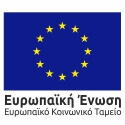C.1 VALUE ADDED TAX (VAT)
The VAT It is an indirect tax, which is imposed on the amount of the net value of the sale of products or services. The trader offsets the expenses VAT and the profits / sales VAT and attributes the difference to the State. In case of expenses VAT is higher than the corresponding sales, the government returns the difference in business.
The VAT replaced the turnover tax in 1987 in our country and applies to all European Union countries and in most countries of the world.
C.1.1 WHO ARE SUBJECTED TO V.A.T.
Any person (natural or legal), which is registered to the VAT register, is subjected to tax as far as it concerns to its transactions.
Persons who are not registered to the VAT register, face the V.A.T. as a cost, as their purchases are charged with VAT.
Persons registered for VAT, shall pay the difference between VAT and sales tax to the government.
Subjected to tax persons with annual income tax (derived from any source) up to 10.000 € are released from taxation.
C.1.2 WHO ARE EXEMPTED OF VAT
The most important activities which are excluded of the VAT duty are:
- the provision of hospital and medical care and diagnostic services,
- the provision of services by dental technicians,
- tutoring all levels of education,
- provide services closely linked to sport or physical education,
- the provision of cultural or educational nature services,
- the provision of education services
C.1.3 CURRENT VAT RATES
VAT rates are:
- the normal 24%
- reduced to 13% (Annex III of the VAT Code)
- the ultra-reduced 6% (Annex III of the VAT Code)
In some Aegean islands remains the old status and the above correlation is 16%, 9% and 4% until 31/12/2016. Then the above mentioned rates, 24%, 13% and 6%, will be applied to the whole Greece.
C.1.4 TRANSACTIONS with right to offset VAT
The VAT can be deductible for all expenses, except for the following:
- purchase, import or intra-Community acquisition of manufactured tobacco,
- purchase, import or intra-Community acquisition of alcoholic or alcoholic drinks, provided tha those are intended for making non-taxable transactions,
- receptions events, entertainment and hospitality in general,
- housing, food, beverages, travel and entertainment for the staff or the representatives of the business,
- purchase, import or intra-Community acquisition of private passenger cars up to nine (9) seats, motorcycles and scooters, boats and private aircrafts intended for entertainment or sport, as well as fuel costs, repair, maintenance, lease and marketing.
C.1.5 SETTLEMENT DISCOUNTS VAT (PRO – RATA) (PRO – RATA)
If taxable person has income from rents and subsidies, then at the end of the tax year should determine the rate of VAT of purchases – expenses will be deducted from the next fiscal year.
C.2 CUSTOM DUTIES
The custom duties are indirect taxes, which are divided into import and export custom duties:
- Import custom duty is imposed by one country on goods imported from third countries (outside the EU).
- Export custom duty imposed by a country in the exported products to third countries (outside the EU).
C.3 STAMP DUTY
The stamp duty is applicable to the net value of the transactions according the Code of Stamp Duties, the main of which are:
| Transaction Description | PERCENTAGE RATE | Subjected to Public Fiscal Service |
| Rents between businesses / enterprises | 3,60% | From the lessor to the company’s income statement |
| Acquisition Title (old expense proof) | 3,60% | From the service taker by the end of the second month following the month of the transaction (example a transaction in the 1st month, then submission by the end of 3rd ). |
| Loans between individuals | 3,60% | Five days from the day following the date of the loan agreement. |
| Loans between SA or Ltd. and individuals | 2,40% | Five days from the day following the date of the loan agreement. |
| Loans between businesses / enterprises | 2,40% | Five days from the day following the date of the loan agreement. |
| Loans contracted abroad | No stamp duty is due if the contract is executed abroad | – |
| Liquidity facility for abusiness (without loan agreement, with simple sight deposit) | 1,20% | Within the first fortnight of the next month following the month of the transaction. |
C.4 OTHER INDIRECT TAXES AND CHARGES
The Other indirect taxes and charges, are mentioned in the following panel table:
| Description | Percentance | Subjected to Public Fiscal Service |
| Capital Concentration Tax | 1% infliction in any increase in share capital (not to the establishment of the company) | Within 15 days from the date of the Minutes of General Meetings. |
| Competition Commission Fee | 0.1% charged over the composition of capital or growth capital of SA business | Bank deposit and submission to the National Bank and submission to General Electronic Commercial Registry along with the Minutes of General Meetings referd to the Share Capital increase |
| Contribution Law. 128/1975 | 0.6% Annual bank contribution by the borrower to the unpaid loan amount | – |
| Insurance Premiums Tax | 4% – 20% of insurance premiums. Contracts lasting at least 10 years are excluded. | – |
| Social Insurance Institute | 25.06% of the gross salary of the employee | By the end of the month following the month of payment of salary. |


